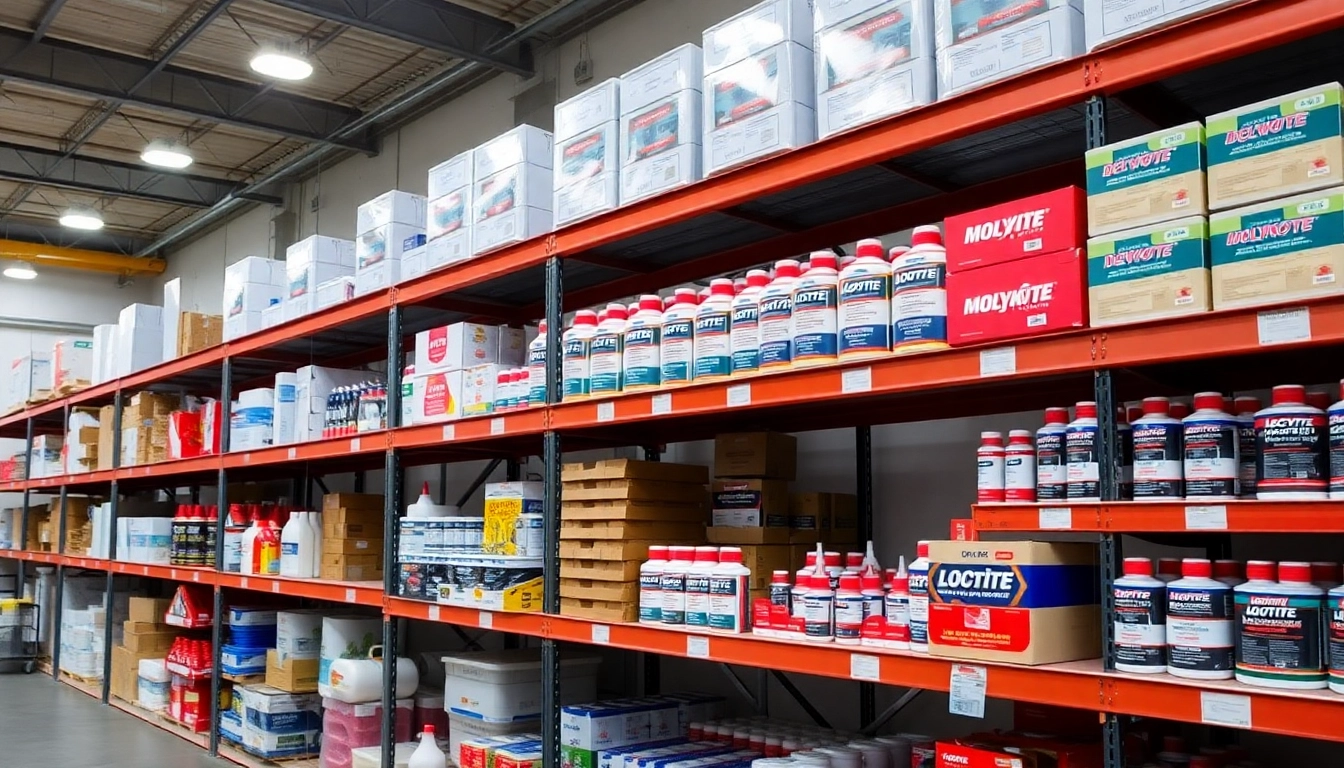Understanding Construction Equipment Rental: Benefits and Key Considerations
In the fast-paced and highly competitive construction industry, operational efficiency and cost management are crucial for project success. Construction companies frequently seek flexible solutions to meet project demands without incurring substantial capital expenditure. One of the most effective strategies in this regard is engaging in Construction equipment rental. This approach not only provides access to a wide range of machinery and tools but also offers financial and operational advantages that can significantly impact project timelines and profitability. This comprehensive guide explores the core aspects of construction equipment rental, from its fundamental benefits to practical considerations, ensuring your construction operations are optimized for success.
What is Construction Equipment Rental and Why It Matters
Construction equipment rental involves leasing machinery, tools, and support equipment for a specified period, typically suited to the duration of a project. Unlike purchasing equipment outright, rental allows firms to access the latest technology and specialized machinery without the substantial upfront investment. This flexibility is especially vital for projects with variable scope or short durations, where owning equipment may not be economically justifiable.
Why does this matter? Because equipment rental empowers construction companies to adapt swiftly to changing project requirements, reduce maintenance burdens, and improve cash flow management. With rental providers often offering comprehensive support, including delivery, maintenance, and disposal of equipment, contractors can concentrate on project execution rather than equipment lifecycle concerns. For UK-based construction firms aiming to stay competitive in a dynamic market, leveraging rental solutions from established providers ensures access to reliable equipment and up-to-date technology aligned with regulatory standards.
How Rental Options Save Costs and Improve Project Timelines
Cost Efficiency and Budget Management
One of the primary drivers for equipment rental is cost savings. Purchasing machinery involves significant capital expenditure, ongoing maintenance, storage costs, and depreciation. Conversely, rentals are typically billed per usage or time, enabling better cash flow management and reducing financial risk. This approach also diminishes unexpected expenses associated with equipment breakdowns or obsolescence.
In addition, rental companies often provide maintenance services, ensuring equipment operates efficiently without additional outlay for repairs. This proactive approach minimizes downtime, boosts productivity, and aligns operational costs closely with project budgets.
Enhancement of Project Timelines and Flexibility
Timely access to the right equipment is critical in maintaining project schedules. Rental providers offer rapid deployment, ensuring machinery arrives precisely when needed. This flexibility allows construction firms to adapt to project changes, such as design modifications or unexpected site conditions, without delays caused by equipment procurement. Moreover, short-term rentals for specialized tools or machinery prevent idle periods and optimize resource utilization.
Case in Point: Effective Equipment Rental in UK Construction
For example, a mid-sized construction firm in the UK required excavators for a six-month urban development project. By opting for rental, the company avoided the high initial purchase cost and eliminated maintenance liability. The rental firm also provided operators and support, resulting in smoother workflow and adherence to tight project deadlines. Such strategic choices demonstrate how rental solutions can significantly contribute to cost and time efficiencies.
Factors to Consider When Choosing a Rental Partner
Reputation and Reliability
Selecting a reputable rental provider is foundational. Look for companies with established experience, positive customer reviews, and a robust reputation for delivering quality equipment on time. Reliable providers also maintain rigorous safety standards and comply with UK regulations.
Equipment Range and Modern Fleet
A diverse fleet enables access to a broad spectrum of machinery suited to various project requirements. Ensure the provider keeps their equipment up-to-date, incorporating latest technology for energy efficiency, safety features, and operational performance.
Coverage and Local Service
Proximity matters. A provider with extensive coverage across your project site ensures quick delivery, pickup, and responsive support. Local providers typically understand regional permitting and safety standards, which streamline operations.
Customer Support and Additional Services
Consider providers offering comprehensive support, including on-site consultation, operator training, maintenance, and emergency repairs. These value-added services reduce disruption and enhance safety and productivity.
Pricing Transparency and Contract Flexibility
Transparent pricing models and flexible rental agreements tailored to project scope can prevent unexpected costs. Always review terms for potential hidden fees and ensure clarity on damage policies, fuel charges, and service levels.
Types of Construction Equipment Available for Rent in the UK
Heavy Machinery: Excavators, Bulldozers, and Loaders
Heavy machinery forms the backbone of large-scale construction projects. Excavators facilitate digging, demolition, and material handling. Bulldozers provide earth-moving and site clearance capabilities. Loaders, including skid-steer and wheel loaders, handle materials efficiently across various terrains. Leading UK rental providers such as Nixon Hire and Sunbelt Rentals offer extensive ranges of these machines, ensuring project-specific needs are met with modern, well-maintained equipment.
Support Equipment: Compactors, Mixers, and Scaffolding
Support equipment enhances operational efficiency and safety. Plate compactors and rollers are essential for achieving the desired ground compaction. Concrete mixers expedite the pouring and setting of foundations. Scaffolding systems ensure safe access at height, compliant with UK safety standards. Reliable rental options include brands like Brandon Hire Station and HSS, offering options suitable for small and large projects alike.
Specialized Tools: Power Tools and Safety Equipment
Specialized tools encompass a range of power drills, saws, vibrators, and other equipment tailored for specific tasks. Safety equipment—such as harnesses, helmets, and safety barriers—is equally critical. Renting ensures workers are equipped with compliant gear, reducing accidents and regulatory compliance risks. Leading suppliers provide comprehensive packages, integrating tools and safety gear in their rental solutions.
Best Practices for Renting Construction Equipment Successfully
Assessing Your Project Requirements Accurately
Effective rental begins with thorough needs analysis. Evaluate project scope, timeline, terrain, and specific task requirements to identify the precise machinery and tools necessary. Overestimating can lead to unnecessary costs, while underestimating risks project delays or safety issues. Creating detailed equipment lists aligned with project phases ensures optimal resource allocation.
Comparing Rental Providers for Reliability and Coverage
Develop a shortlist of rental companies based on reputation, fleet quality, geographic coverage, and customer reviews. Contact providers to discuss your specific needs, confirming their ability to supply equipment on time and support your project schedule. Request references or case studies to validate their reliability and service standards.
Maintaining and Operating Rented Equipment Safely
Proper training of personnel in equipment operation and safety protocols is paramount. Many rental companies offer operator training, safety briefings, and maintenance guidelines. Regular inspections and adherence to safety standards reduce accidents and prolong equipment lifespan, ultimately saving costs and ensuring smooth project progress.
Legal and Contractual Considerations
Review rental agreements carefully, focusing on liability clauses, damage policies, and cancellation terms. Ensure that insurance coverage is adequate. Clear contractual terms prevent disputes and facilitate smooth resolution of issues that may arise during rental periods.
Implementation Tips and Optimization Strategies
Scheduling Rentals to Maximize Efficiency
Coordinate equipment rental schedules with project milestones and personnel availability. Staggered or phased rentals help avoid equipment congestion and optimize cash flow. Use detailed project timelines to plan pickups and returns, reducing idle time and additional fees.
Utilizing Technology for Equipment Management
Develop or adopt equipment management software to track rentals, usage, maintenance, and location. Real-time monitoring improves accountability and minimizes theft or misplacement. Technologies such as GPS tracking and digital documentation streamline operations and facilitate reporting.
Training Staff for Optimal Use and Safety Compliance
Invest in comprehensive training programs tailored to equipment types and site-specific safety standards. Well-trained staff operate machinery more efficiently, reduce errors, and improve safety outcomes. Additionally, fostering a safety culture enhances compliance and minimizes risk.
Monitoring Performance and Adjusting Strategies
Regularly review operational metrics, such as machine uptime, productivity rates, and incident reports. Use data insights to refine rental strategies, optimize equipment deployment, and address inefficiencies proactively.
Measuring ROI and Long-Term Benefits of Equipment Rentals
Cost Analysis: Rental vs. Purchase
Conduct detailed cost-benefit analyses considering initial investment, maintenance, storage, and depreciation versus rental costs over the project lifespan. For many projects, rentals prove more economical, especially with unpredictable or short-term requirements.
Impact on Project Delivery and Quality
Access to modern, well-maintained equipment enhances work quality and safety, leading to fewer reworks and smoother completion. Timely equipment availability reduces delays, allowing projects to stay on track and within budget.
Building Sustainable and Scalable Construction Operations
Rental solutions support flexible scaling, accommodating growth or project diversification. They also reduce the environmental footprint by enabling equipment sharing, promoting reuse, and utilizing energy-efficient machinery. Strategic rental usage aligns with sustainability goals and corporate social responsibility initiatives.
Long-Term Strategic Planning
Incorporate rental strategies into your long-term operational plan. Partnering with reliable providers can lead to cost discounts, priority access, and customized service packages, creating a competitive advantage in the UK construction market.










